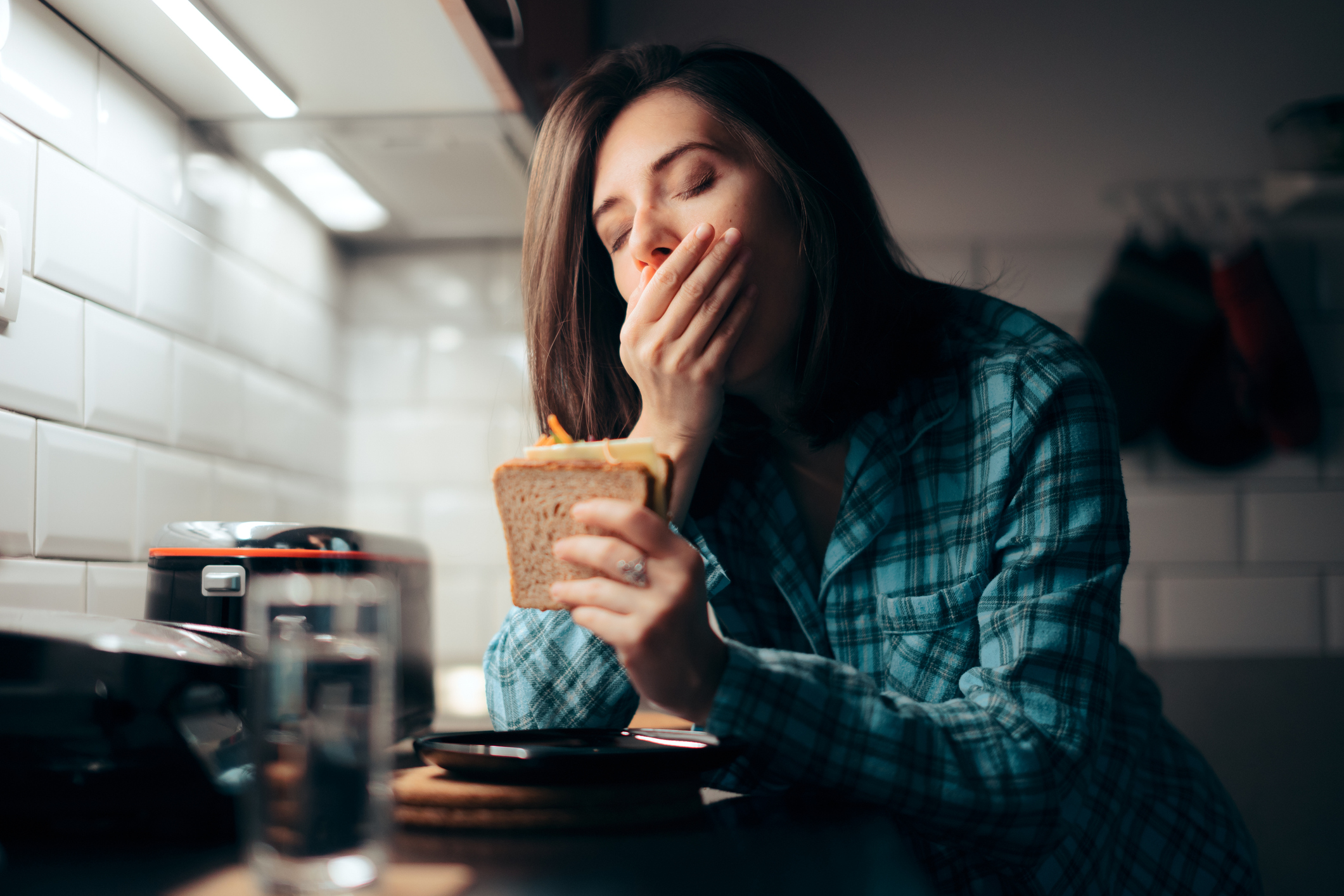Get Easy Health Digest™ in your inbox and don’t miss a thing when you subscribe today. Plus, get the free bonus report, Mother Nature’s Tips, Tricks and Remedies for Cholesterol, Blood Pressure & Blood Sugar as my way of saying welcome to the community!
How eating late makes body fat ‘grow’

It’s no longer an exaggeration to say that obesity is becoming an epidemic in the U.S.
Obesity rates among American adults have jumped from roughly 31 percent in 1999-2000 to about 42 percent in 2017-2018. That means that more than 2 in 5 U.S. adults can now be considered obese, which is defined as having a body mass index (BMI) of 30 or higher.
And rates of severe obesity — where BMI is 40 or higher — are growing even faster, from 4.7 percent of U.S. adults in 1999-2000 to 9.2 percent in 2017-2018.
These rising rates are worrying because obesity contributes to the onset of chronic diseases, including diabetes and cardiovascular disease, among other conditions.
Given how busy we all are, it’s just too easy (and often cheaper) to ignore what we know about healthy eating and grab what equates to ultra-processed convenience foods instead.
That’s why scientists are doing everything they can to figure out the mechanisms behind obesity so that they can offer additional tips, like this one…
Don’t eat late at night. We’ve written before about how eating late at night can affect memory, increase your risk of diabetes, obesity and acid reflux and leave you feeling hungrier in the morning.
And now we know eating late changes everything about how your body processes calories and fat…
More perils of late eating
To further understand why eating late has such a negative impact on weight loss, investigators from Brigham and Women’s Hospital studied a group of patients with a BMI in the overweight or obese range. They prepared the participants for the laboratory by having them follow a fixed sleep/wake cycle for two to three weeks before and identically prepared diets and meal schedules three days before entering the lab.
But once in the lab, their meal regimes changed. One protocol had meals strictly scheduled early in the day. The other had the same meals but they were scheduled about four hours later. During both meal schedules, the participants regularly documented their hunger and appetite levels and underwent a number of tests and measurements to monitor markers of energy expenditure and fat storage.
“In this study, we asked, ‘Does the time that we eat matter when everything else is kept consistent?’” says first author Dr. Nina Vujovic, a researcher in the Brigham’s Division of Sleep and Circadian Disorders. “And we found that eating four hours later makes a significant difference for our hunger levels, the way we burn calories after we eat and the way we store fat.”
Appetite increases, calorie burn decreases
According to the results, eating later played havoc with appetite-regulating hormones. Levels of the hormone leptin, which signals when we are full, were lower across the 24 hours in the late-eating group than they were in the early-eating group.
When participants ate later, they experienced a 5 percent drop in calorie burn compared to when they ate earlier in the day.
Eating later also affected pathways related to lipid metabolism. Participants eating later showed increased adipogenesis and decreased lipolysis — both of which promote fat growth.
In future studies, the researchers hope to better understand the effects of the relationship between mealtime and bedtime on energy balance.
If you find yourself raiding the fridge late at night, there are a few ways you can bolster your willpower to resist that late-night snacking urge. Make sure you’re eating enough during the day and that you have a healthy dinner planned for no later than 6 p.m. And try to avoid the urge to mindlessly snack when you’re stressed or during activities like watching TV or scrolling through your social media feeds.
Another step you can take is to limit the amount of blue light you’re exposed to at night. One study shows blue light can cause a spike in hunger 15 minutes after you’re exposed to it. You might also appreciate tips on how to boost your natural appetite suppressant and reset your hunger hormones.
Editor’s note: Did you know that when you take your body from acid to alkaline you can boost your energy, lose weight, soothe digestion, avoid illness and achieve wellness? Click here to discover The Alkaline Secret to Ultimate Vitality and revive your life today!
Sources:
Eating Late Increases Hunger, Decreases Calories Burned, and Changes Fat Tissue — Brigham and Women’s Hospital
Late isocaloric eating increases hunger, decreases energy expenditure, and modifies metabolic pathways in adults with overweight and obesity — Cell Metabolism
Overweight & Obesity Statistics — National Institute of Diabetes and Digestive and Kidney Diseases
Prevalence of Obesity and Severe Obesity Among Adults: United States, 2017–2018 — Centers for Disease Control and Prevention
Obesity Prevention Source — Harvard T.H. Chan School of Public Health













